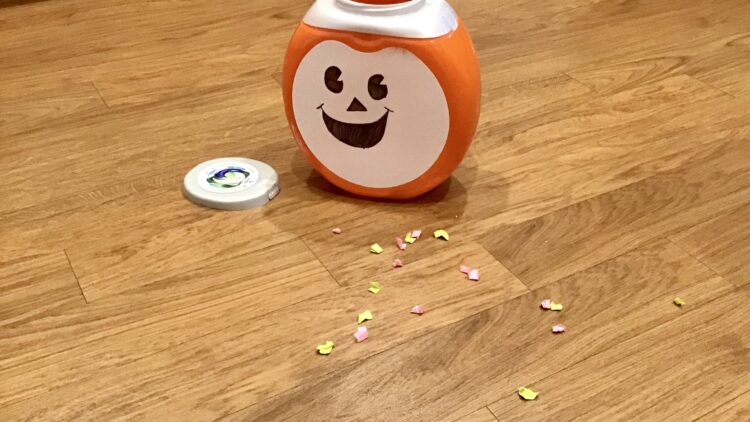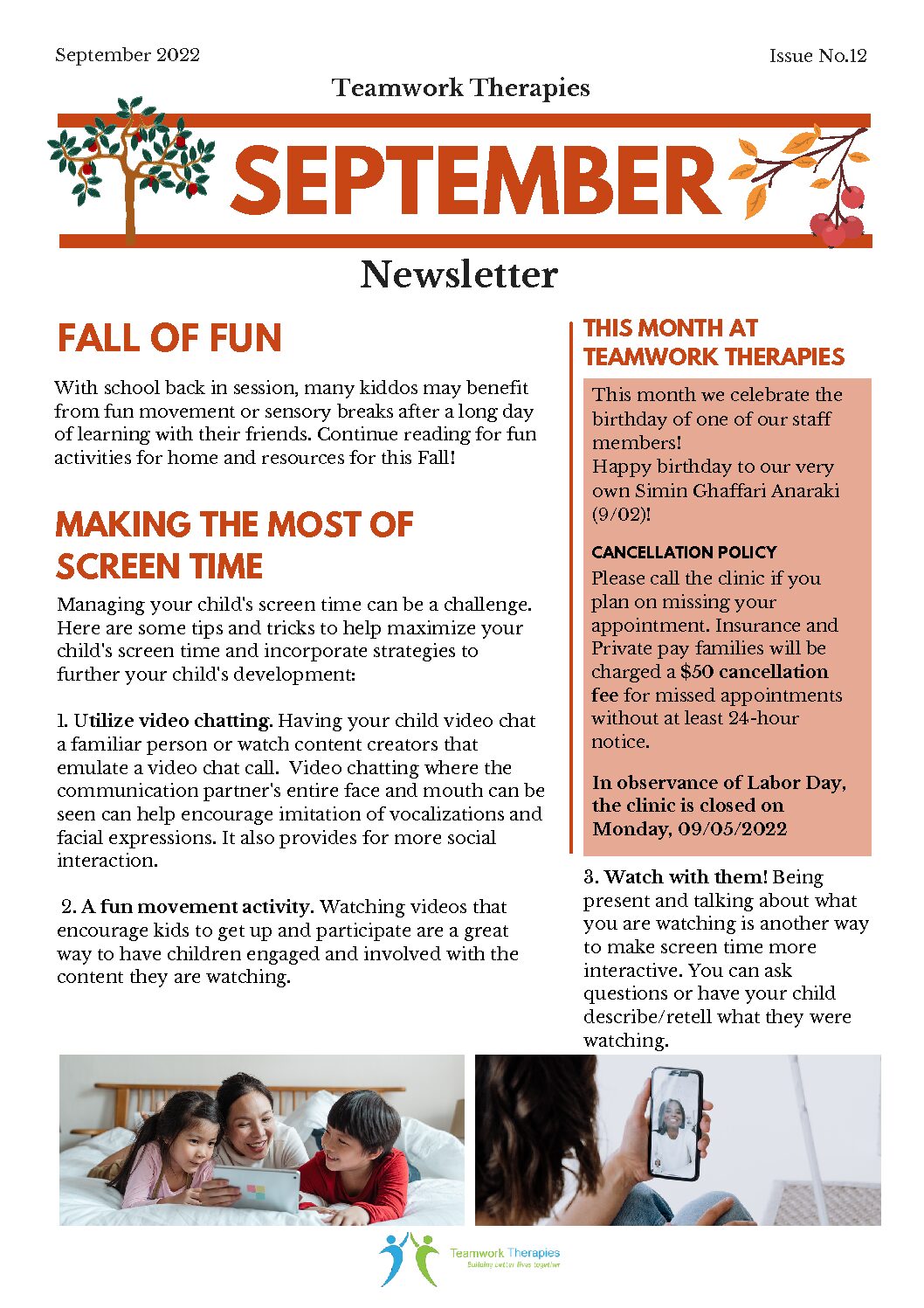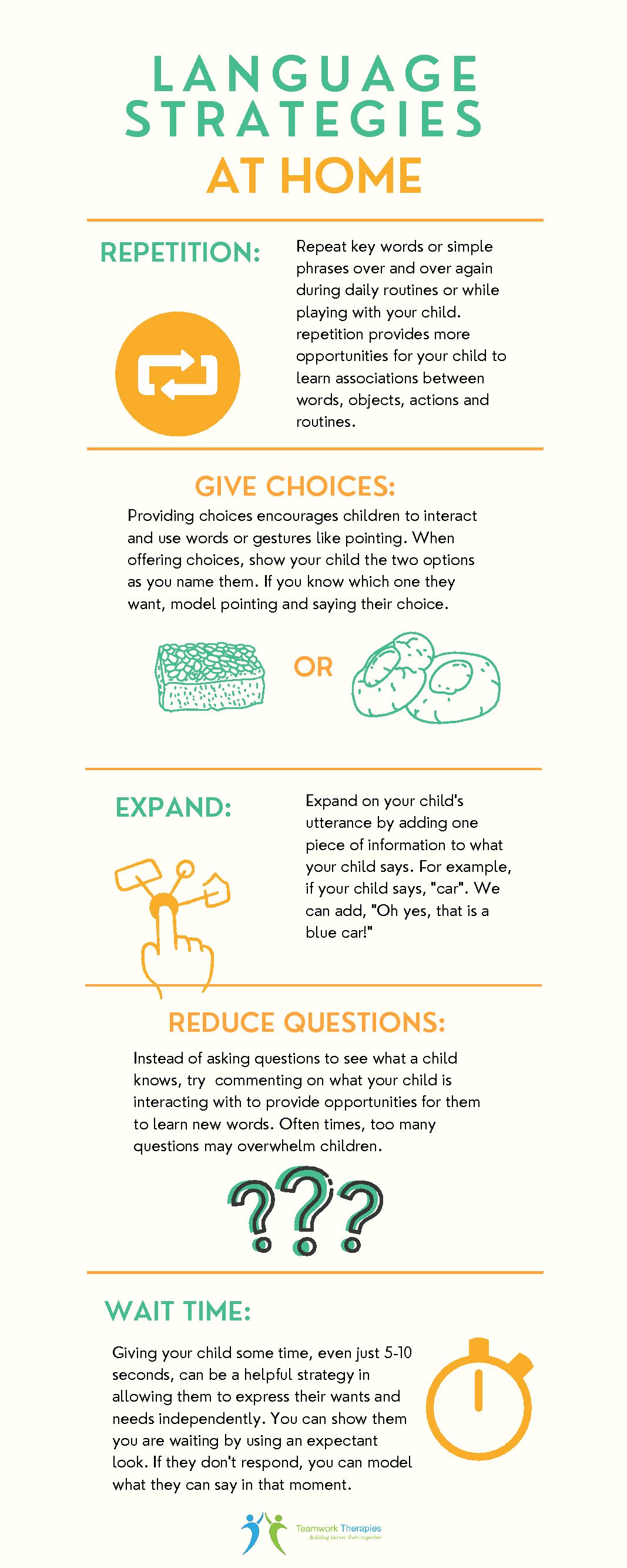Promoting Language at Meal Time
Mealtime is a highly motivating and social time perfect for promoting speech and language goals! Check out this quick and easy handout for ideas on how to incorporate speech and language strategies while you eat!

Mealtime is a highly motivating and social time perfect for promoting speech and language goals! Check out this quick and easy handout for ideas on how to incorporate speech and language strategies while you eat!

November is here and the holidays are upon us! Check out what’s happening this November at Teamwork Therapies!

As Halloween approaches, here is a fun activity to try at home with your kiddo. One of our amazing early interventionist, Jagruti, created a fun and simple arts and crafts activity using things you might already have at home! This activity can be repurposed and reused for any occasion, not just Halloween. Create any silly face to keep this activity fun all year round!
Download our activity packet here:

Happy Fall! Check out this month’s family newsletter to see what’s happening this Fall at Teamwork Therapies!
Something new we’re doing to kick off Fall is Themed weeks. You and your kiddo are welcome to join our staff in dressing to theme for the whole month of October!

Mouthing, chewing, and sucking on non-edible objects can become a concerning behavior. Understanding the underlying needs of children who mouth can be the very first step to addressing this with our kiddos.
There are many reasons why children engage in mouthing behaviors. Here are some of the most common reasons:
There are many strategies and tools we can employ to help our child have their needs met in a safe way. Take a look at some simple and effective ways to manage mouthing.
For the full PDF Handout: Managing Mouthing

Our September 2022 Parent Newsletter is out now! To download your full copy, click on the link below:

Here are 5 strategies to try at home today to encourage language development. For more strategies or questions, reach out to your therapist today!